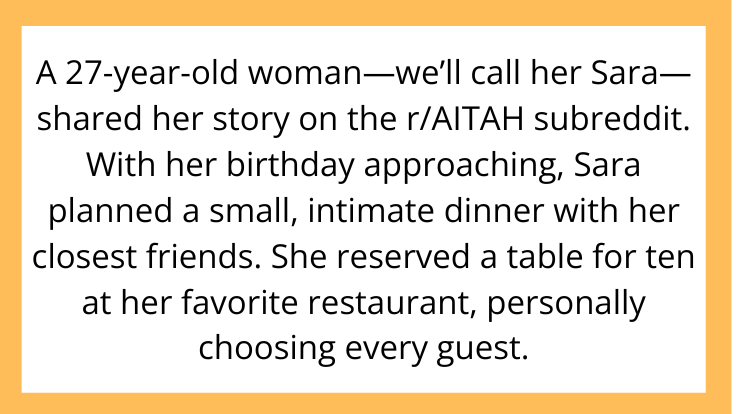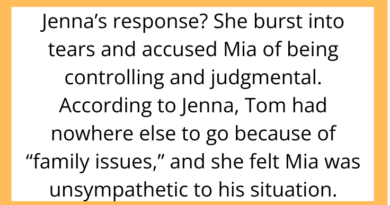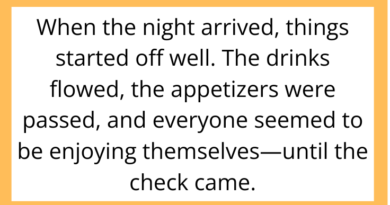AITAH for Not Letting My Best Friend Bring Her Boyfriend to My Birthday Dinner Because I Don’t Like Him?
Birthdays are supposed to be about joy, celebration, and being surrounded by people who truly make you feel seen and appreciated. But what happens when one guest threatens to ruin that vibe—just by showing up?
That’s the conflict in today’s AITAH-inspired blog post, where a birthday dinner becomes a battleground over loyalty, personal preferences, and the invisible lines we draw between friends and their partners.
The Background: One Table, One Rule
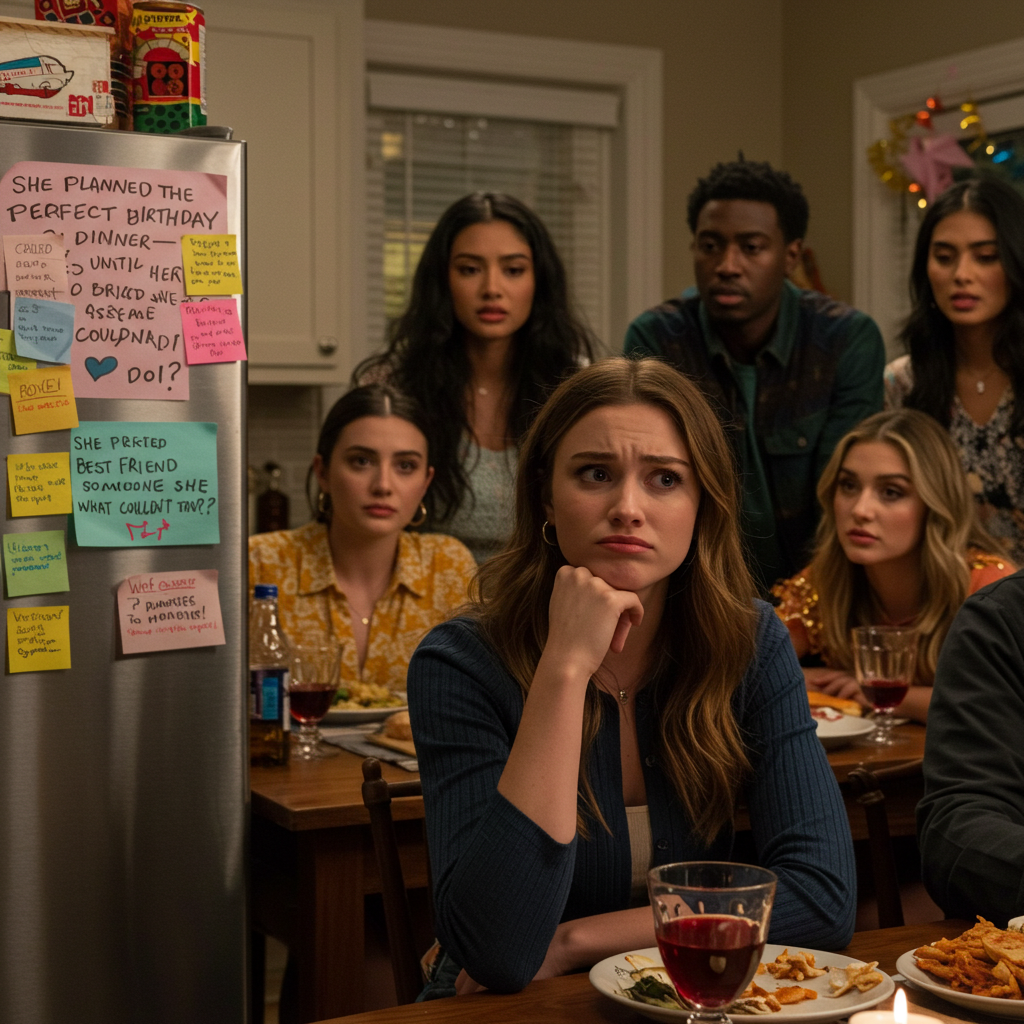
A 27-year-old woman—we’ll call her Sara—shared her story on the r/AITAH subreddit. With her birthday approaching, Sara planned a small, intimate dinner with her closest friends. She reserved a table for ten at her favorite restaurant, personally choosing every guest.
One of those guests was her best friend, Rachel. But when Rachel asked if she could bring her boyfriend, Kyle, Sara hesitated—and ultimately said no.
Why? She doesn’t like him. At all.
Why Sara Said No

According to Sara, Kyle has always rubbed her the wrong way. He’s made snide remarks in the past, dominated conversations, and once even mocked her job in front of their friend group. She tried to give him the benefit of the doubt early in their relationship, but things only got worse over time.
This birthday was supposed to be a “no drama, no fake smiles” event. So, when Rachel asked if Kyle could join, Sara replied politely but firmly: “I’d really prefer to keep it just close friends this time. I want to feel comfortable and not on edge at my own dinner.”
Rachel was shocked—and hurt. She argued that Kyle is her partner and should be welcome if she is. She said she felt like she was being forced to choose between her best friend and her boyfriend.
Now, Sara is second-guessing everything. AITAH for setting this boundary at my own birthday dinner?
Setting Boundaries or Being Controlling?

The Case for Sara: It’s Her Day
Sara’s supporters on Reddit were quick to point out that birthdays are personal. If she’s not comfortable having someone there who makes her anxious, she has every right to exclude them—especially from a private, hand-picked gathering.
“This isn’t a wedding or a formal event with plus-ones,” one commenter wrote. “It’s a dinner for your birthday. You should be able to choose who sits at the table.”
Another noted, “Not liking someone is enough reason. Your peace matters.”
And many echoed the idea that Rachel’s request wasn’t a guarantee—it was just that: a request.
The Case for Rachel: Love Comes in Pairs
On the flip side, Rachel may feel this decision sends a bigger message: that Sara doesn’t respect or accept her relationship. To her, this could feel like an indirect way of saying, “I like you, but not your choices.”
In social etiquette, partners are often considered a package deal—especially in long-term relationships. Rachel may feel humiliated or excluded if everyone else at the dinner gets to bring someone and she doesn’t.
Is a Birthday an Exception to Social Rules?
This conflict raises a larger question: Do social norms (like inviting partners) apply the same way when it’s your birthday?
Here’s where it gets murky:
-
Birthdays are personal: Unlike formal events, they’re often curated to reflect someone’s emotional comfort.
-
Partners can be divisive: Especially if there’s history, tension, or behavioral concerns, it’s not unreasonable to exclude someone.
-
Communication matters: How Sara said “no” may influence whether she seems respectful or dismissive.
In Sara’s case, she was upfront and calm—but the fallout still hurt.
What Reddit Decided

The top-voted comments overwhelmingly sided with Sara. Many emphasized that birthdays are one of the rare times you can unapologetically make things all about you.
“If people start dictating who you have to spend your birthday with, then it’s not really your birthday,” one person wrote.
Still, others advised caution: “This could damage your friendship. If Rachel ends up marrying Kyle, are you ready for a lifetime of tension?”
When Friendship and Relationships Clash
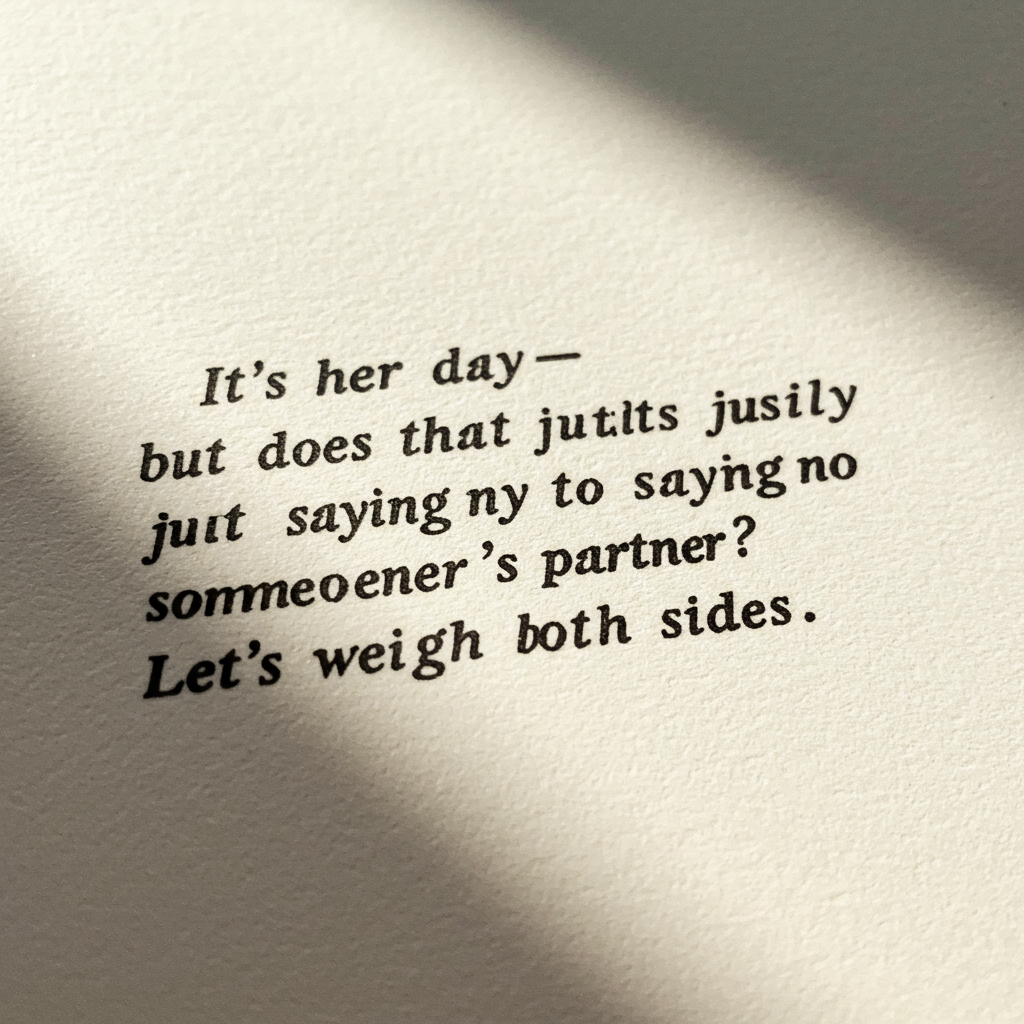
This story illustrates a common dilemma: What happens when you don’t like your friend’s partner?
It’s a tricky tightrope:
-
Say nothing, and you risk your mental health and enjoyment.
-
Speak up, and you risk losing your friend or causing resentment.
Some questions worth asking:
-
Is the dislike personal or based on red flags?
-
Have you communicated your feelings respectfully before?
-
Is the situation about one night—or the bigger pattern?
In Sara’s case, it was about one night. But the emotional weight was far heavier.
So, AITAH?
Let’s be clear: It’s not inherently wrong to set boundaries—especially for a personal event like a birthday. Sara had the right to choose who was at her table, and she did it without malice or public shaming.
But intent doesn’t erase impact. Rachel’s hurt is real. If the friendship matters, both parties need to talk honestly about what happened—and whether this was about more than just a birthday dinner.
